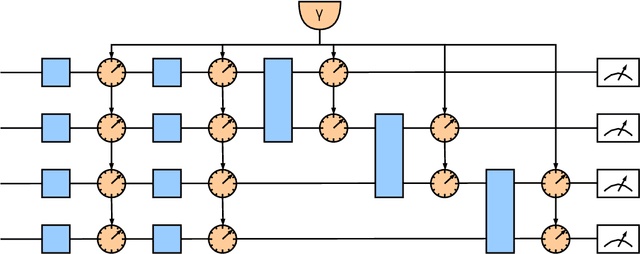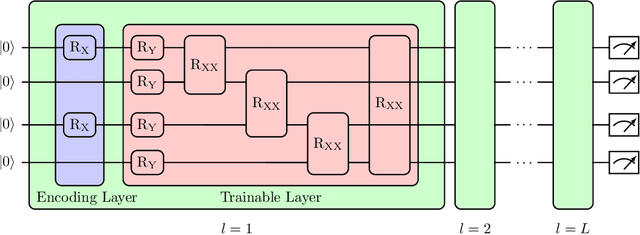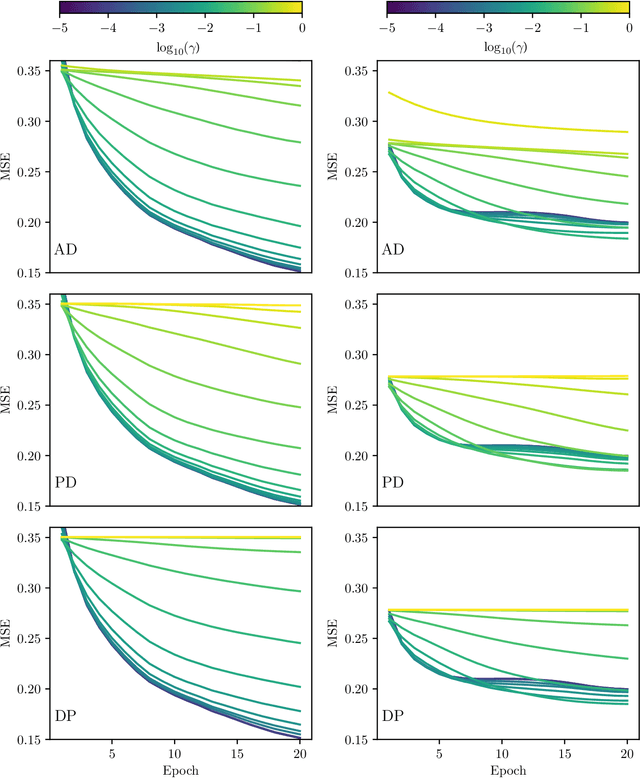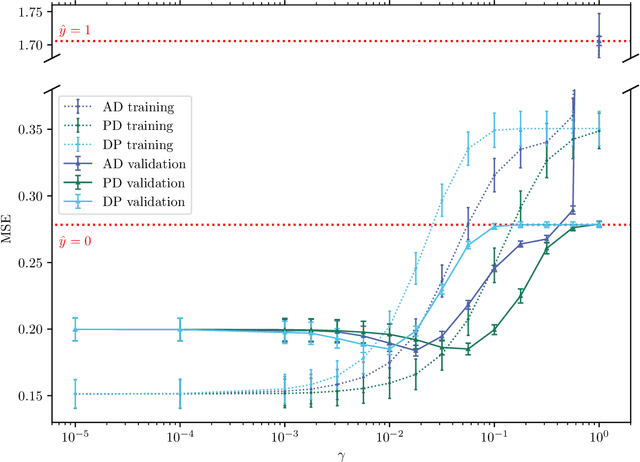Wilfrid Somogyi
Method for noise-induced regularization in quantum neural networks
Oct 25, 2024



Abstract:In the current quantum computing paradigm, significant focus is placed on the reduction or mitigation of quantum decoherence. When designing new quantum processing units, the general objective is to reduce the amount of noise qubits are subject to, and in algorithm design, a large effort is underway to provide scalable error correction or mitigation techniques. Yet some previous work has indicated that certain classes of quantum algorithms, such as quantum machine learning, may, in fact, be intrinsically robust to or even benefit from the presence of a small amount of noise. Here, we demonstrate that noise levels in quantum hardware can be effectively tuned to enhance the ability of quantum neural networks to generalize data, acting akin to regularisation in classical neural networks. As an example, we consider a medical regression task, where, by tuning the noise level in the circuit, we improved the mean squared error loss by 8%.
Benchmarking simulated and physical quantum processing units using quantum and hybrid algorithms
Nov 28, 2022Abstract:Powerful hardware services and software libraries are vital tools for quickly and affordably designing, testing, and executing quantum algorithms. A robust large-scale study of how the performance of these platforms scales with the number of qubits is key to providing quantum solutions to challenging industry problems. Such an evaluation is difficult owing to the availability and price of physical quantum processing units. This work benchmarks the runtime and accuracy for a representative sample of specialized high-performance simulated and physical quantum processing units. Results show the QMware cloud computing service can reduce the runtime for executing a quantum circuit by up to 78% compared to the next fastest option for algorithms with fewer than 27 qubits. The AWS SV1 simulator offers a runtime advantage for larger circuits, up to the maximum 34 qubits available with SV1. Beyond this limit, QMware provides the ability to execute circuits as large as 40 qubits. Physical quantum devices, such as Rigetti's Aspen-M2, can provide an exponential runtime advantage for circuits with more than 30. However, the high financial cost of physical quantum processing units presents a serious barrier to practical use. Moreover, of the four quantum devices tested, only IonQ's Harmony achieves high fidelity with more than four qubits. This study paves the way to understanding the optimal combination of available software and hardware for executing practical quantum algorithms.
 Add to Chrome
Add to Chrome Add to Firefox
Add to Firefox Add to Edge
Add to Edge